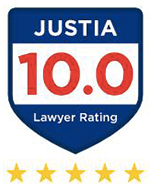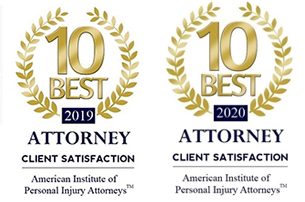
By: Leslie S. Harkavy, Esquire
One of the first questions you ask yourself when injured in an automobile accident, is who will pay my medical bills? If the accident is not your fault, you naturally assume the responsible party will pay your medical bills. You are not at fault. Why should you or your insurance company pay? Well, even if you are not responsible for the accident, that does not mean you are off the hook for paying medical bills for medical treatment you need. Here is how we often see this issue play out:
Out of nowhere, a car rear ends your automobile. You instantly realize you are injured. Your car sustains significant property damage. The police come to the scene. They ask if you are hurt. You tell them you are, and they call for an ambulance. The ambulance arrives. They take you to the Emergency Room department of your local hospital. In the Emergency Department you are triaged. The doctors diagnose you with a likely concussion and a broken ankle. There is a chance that you will need surgery.
The Hospital discharges you from the Emergency room but admits you to the Hospital. You undergo a series of medical tests. These include CT scans, multiple x-rays and later on even an MRI. Your blood is drawn and is reviewed in the laboratory. The Hospital now wants you to stay overnight. Unfortunately, you are unable to sleep due to your injuries and are awake all night because the nurses keep checking to see if you are ok. The next day, the doctors decide it is finally time to discharge you.
The discharge instructions tell you to follow up with your primary care physician and an orthopedic specialist. These appointments are scheduled, and you attend all of them. The physical therapists schedule your physical therapy multiple times a week. The doctors also schedule you for return visits. The doctors order more x-rays, cast changes and request that you purchase other assistance devices.
Next you know it, the bills start flooding in. But why should you pay them, when the other person is at fault? You begin to worry that nothing is being paid. The bills are stuck. This makes no sense. They keep arriving in your mail. Before you know it, you have thousands of dollars of unpaid medical bills sitting on your kitchen counter. These bills include charges for the ambulance ride, the emergency hospital facility and multiple physicians. Your physical therapy bills remain unpaid. Maybe you are trying to keep up with your co-pays. But payments for your medical devices and cast changes seem to be in limbo. You don’t know why or what to do to fix this situation and get the bills paid. A bill collector is sending you letters. You decide to call and hire a local personal injury attorney, such as Nadeau Harkavy LLC to help. You are hoping it is not too late. You realize you should have done this on day one.
In Massachusetts, the no-fault auto insurer pays first up to 2K or 8K depending on the circumstances. If your bills are piling up unpaid, chances are your medical bills were not properly submitted by your providers to the no fault automobile insurance company first. The adjuster at the auto insurance company ultimately authorizes the payments upon receipt of medical records and bills from the provider. If you are injured in an automobile accident, it is very important you give your providers both your automobile insurance and your health insurance information so that they may properly submit your medical bills to your insurance company for you. Without the no fault auto carrier paying the medical bills until the personal injury protection limit is exhausted, the health insurance may never pay. Usually, your health insurance will not begin to pay until a PIP exhaust letter is received.
- What are Personal Injury Protection Benefits?
In Massachusetts, personal injury protection benefits “PIP” coverage, is mandatory insurance for all drivers. It covers your medical bills and lost wages if you or your passengers are injured in a car accident. Massachusetts General Laws Annotated Chapter 90, Section 34M is known as the PIP statute. Pursuant to this law, every motor vehicle policy must have personal injury protection benefits. It is a type of automobile insurance coverage. It is also known as no-fault. A claim is usually first submitted to your automobile insurance by filling out and filing a Personal Injury Protection Benefits form.
PIP is considered the primary insurance for the first $2,000.00 of medical claims. The coverage is meant to pay for the first $2,000.00 of medical bills if you are injured in an auto accident. The automobile insurance carrier will pay these bills. If the medical claim exceeds $2,000.00, the PIP insurer will issue a $2,000.00 PIP exhaust letter once the first $2,000.00 is paid. This letter is usually sent by the PIP insurer to the medical providers who have outstanding bills and also to the victim’s attorney. Although sometimes your attorney needs to specifically ask the adjuster for a PIP exhaust letter in order to jump start the process. Once the providers receive a PIP exhaust letter, the health coverage becomes Primary. The PIP benefit is limited to $8,000.00. After the first $2,000 in claims are paid by PIP, the remaining PIP benefits coordinate with the health coverage.
The PIP benefit may be responsible to pay for copayments, coinsurance, deductibles or health services not covered under the patient’s health coverage. PIP may also pay for lost earnings, separate from the medical bills up to the $8,000.00 statutory amount. If you have a private, non-ERISA health plan, your motor vehicle insurance company does not necessarily have to pay out the full $8,000.00.
- What is a Lien?
A medical lien is a claim on the settlement proceeds of a personal injury case, by an insurance company or even a health care provider for services rendered to an injured person. Pursuant to Massachusetts laws, Notice of a Lien, Massachusetts General Laws c. 111, Section 70B, a medical provider may assert a lien by giving written notice of the name and address of the injured person, date of the accident, the name and location of the provider of the hospital, medical or dental services and the name of the person liable for the injuries received to the injured party. The notice must be by sent by certified mail, return receipt requested to the injured person or his attorney or to the person liable.
As part of a personal injury case, the related medical bills incurred are usually part of your reimbursement from the responsible party. Your settlement damages include your medical bills. So, if a responsible party pays you back for your medical bills as part of your settlement, but your health insurance company already paid these bills, the health insurance company usually places a lien on your case for reimbursement for what they paid. The liability carrier will honor that lien. The health insurer can get reimbursed upwards to 100% for the bills they paid. It is important for attorneys to ask for and to study the itemized liens and be sure there are no duplicate expenses listed for reimbursement or expenses that are unrelated to their personal injury case. If any expenses are duplicate or unrelated to the personal injury case, your attorney can ask the lien holder to remove them from the lien.
Even if PIP is exhausted and your health insurance provider starts to pay the bills, or even before PIP is exhausted, and you just got home from the hospital, your health care provider may put a lien on your case. This is done by your own health insurance company to protect the company’s rights to payments for medical services they provided to you. Chances are, when you first obtained health insurance coverage and/or received the medical services in the first place, you made a promise to pay the insurers and providers back and signed that promise in writing. So, if the health insurer or medical provider covered your medical bills or if they are still outstanding, they may place a lien on your case.
Upon receipt of liens, or learning about them for the first time from your attorneys, our clients often ask us, “Why should I have to pay that lien?” Our clients may even be adamant that there is no way they will ever pay the lien. They may even further insist the responsible party will pay. Right? Well sort of and not really…. It is understandable that our clients are quite surprised and upset to learn that their health insurance providers have the right to assert a lien for the repayment of their medical bills incurred in connection with a personal injury case, even when it was someone else’s fault. That is why early on, the insurers may write you a letter, asking the details of how you were injured, or call you on the phone to investigate if a third party is actually responsible for the bills. The health insurers or providers may have you fill out forms after your accident to identify other potential payors. They want to be paid for the services they provide, and they may even want to assert their right to a lien on your case.
Any local personal injury attorney you hire should also know to ask that the lien be reduced. Often times these liens are embedded into the health insurance plans of employers or the actual health insurance plan itself. The plan creates a right to assert a medical lien on the injured party’s settlement. Valid liens include ERISA plans and Medicare. The federal government has a statutory lien for Medicare payments. Under the Medicare Secondary Payer Act, Medicare makes conditional payments which much be paid back at the time of settlement.
In summary, despite the fact you may be a victim of an accident and someone else is responsible for the harm caused to you requiring medical treatment, you still are ultimately responsible for your medical bills you incur. The law in Massachusetts requires auto and health insurance companies to process your medical bills and pay them regardless of who is at fault for your accident. There is a coordination of benefits between the insurance carriers to pay your medical bills. Liens are something that cannot be ignored. They allow medical providers and health insurance company to legally assert their rights for reimbursement in the event you recover money from the responsible party, through a settlement or court proceeding such as jury trial. At Nadeau Harkavy LLC, we help our clients injured in accidents understand the lien process, assist in ensuring that the charges on the lien are accurate, and negotiate a possible reduction. This gives you peace of mind knowing you have lawyers with decades of experience handling your case in your best interest.
When someone is injured in a motor vehicle accident, slip and fall, or through any other accident, a thorough investigation of the accident events is necessary to determine the cause of the accident and secure important information. As a victim of an accident, you need to make sure everything is done to protect your interests, including dealing with potential medical liens on your settlement proceeds. The lawyers at Nadeau Harkavy LLC help victims and their families recover compensation in serious injury and wrongful death cases arising from car crashes and other accidents. If you have any questions about your legal rights relating to a car accident, wrongful death or other accident, feel free to contact us for a free consult today at 617-674-7640.
Meet The Lawyers
With 60 years of combined experience serving injured victims in Massachusetts, our team has collaborated for nearly two decades, delivering a proven track record of outstanding results for clients. Guided by a philosophy of treating clients as we would our own family, we strive to ease our clients' journey from the initial phone call to case resolution. Committed to competing and fighting vigorously, we aim to hold insurance companies accountable to the fullest extent of the law. Our belief in close communication ensures the best possible outcomes, and our approachability makes us readily available to you. Entrust us with your case, allowing you to focus on your physical, emotional, and financial recovery.
Massachusetts Personal Injury Lawyers
Massachusetts Personal Injury Lawyers with over 60 Years Combined Experience Representing Those Injured in Accidents.












